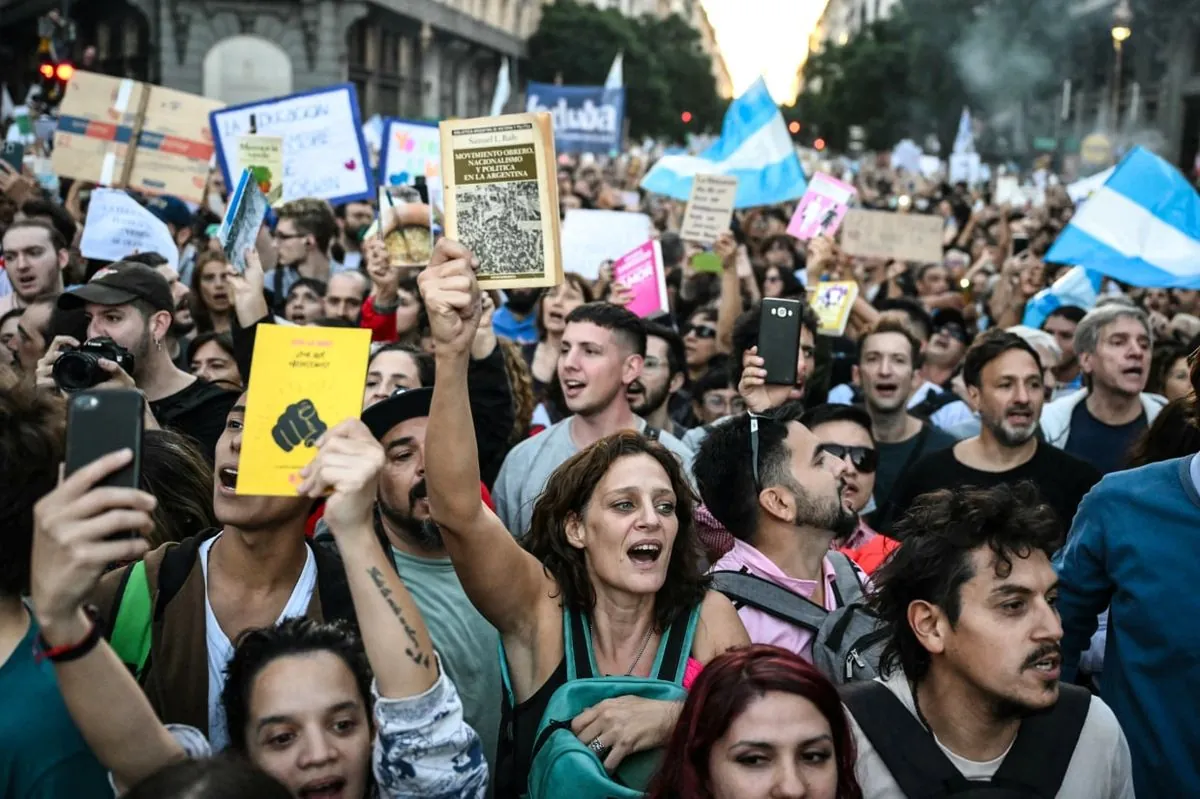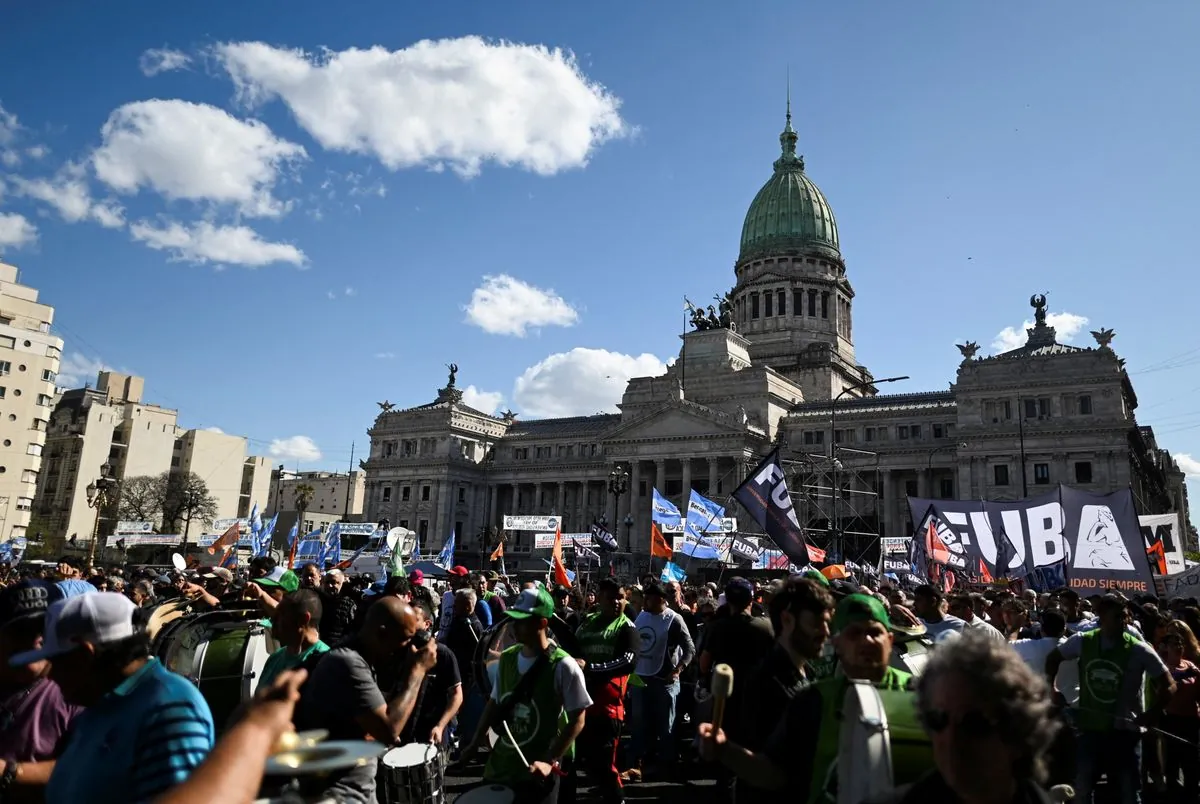Argentine Universities Rally Against Milei's Budget Cuts
Public universities in Argentina plan massive protest against President Milei's spending cuts. Government threatens to veto funding law amid economic crisis and accusations of undermining education.

In a significant development, Argentina's public universities are set to stage a large-scale demonstration on October 4, 2024, in response to President Javier Milei's stringent public spending cuts. This protest, backed by unions and opposition parties, comes at a time when Argentina faces severe economic challenges, with annual inflation nearing 240% and over half of its population living in poverty.
The catalyst for this protest is the Milei administration's threat to veto a recently passed law ensuring university funding. This move has sparked outrage among educational institutions and their supporters, who view it as an attack on the country's long-standing tradition of free public education.
Ricardo Gelpi, rector of the University of Buenos Aires (UBA), expressed strong criticism of the government's actions:
"The government has a systematic, methodical and gradual plan to destroy public education."
The UBA, Argentina's largest university and ranked among the world's top 100 according to the QS World University Rankings, has been at the forefront of this resistance. It's worth noting that Argentina's public universities have a rich history dating back to the University Reform of 1918, which established the principle of free higher education.

The Milei government has justified these budget cuts by claiming that public universities are hotbeds of "socialist" indoctrination. However, this assertion has met with widespread social resistance, given the high regard Argentines hold for their higher education institutions. Argentina's literacy rate exceeds 98%, one of the highest in Latin America, largely due to its robust public education system.
This is not the first time universities have faced such challenges. In April 2024, a massive protest involving hundreds of thousands of students and teachers forced Milei to reconsider cuts to the university budget. However, authorities from prestigious institutions claim that promised improvements were not implemented.
Milei's economic plan aims to achieve fiscal balance in Argentina's struggling economy. Critics argue that these adjustments disproportionately affect vulnerable sectors, including health and education. Argentina typically allocates about 6% of its GDP to education, surpassing the OECD average.
In response to the criticism, Argentina's Ministry of Human Capital issued a statement asserting their commitment to public universities while demanding greater transparency in resource management. This stance aligns with the government's broader economic strategy but has done little to assuage concerns within the academic community.
The impact of these cuts on university staff has been severe. According to the UBA, which boasts five Nobel laureates among its graduates, teaching and non-teaching staff have experienced a 40% reduction in purchasing power since December 2023. This decline has pushed many below the poverty line, exacerbating concerns about potential "brain drain" – a historical issue in Argentina during periods of economic instability.
As the protest approaches, it's clear that Argentina's public universities, which have played significant roles in social and political movements throughout the country's history, are once again at the forefront of a national debate. The outcome of this confrontation between the government and the education sector could have far-reaching implications for Argentina's future, particularly in maintaining its tradition of academic excellence and free public education.


































